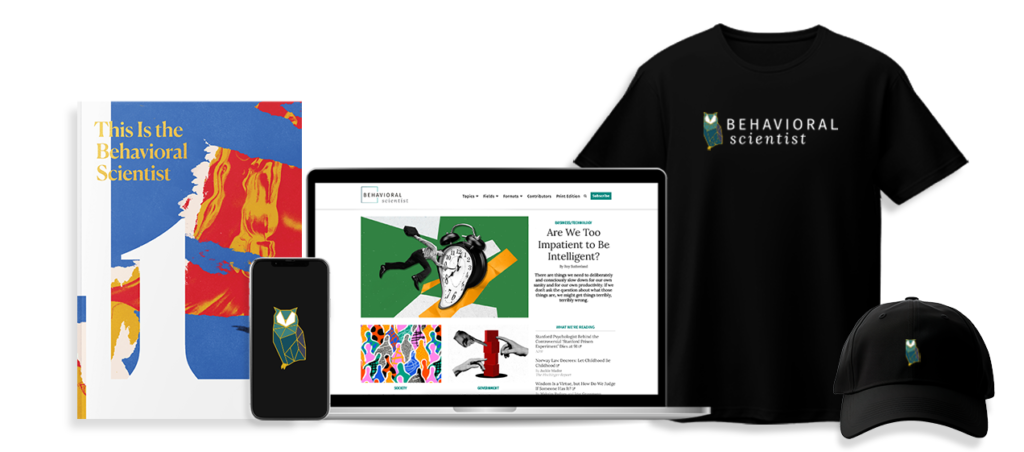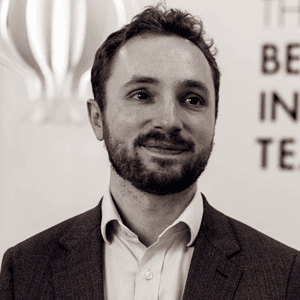A small revolution is brewing on the internet. From baking and makeup artistry to chess and poker, and every flavor of video game imaginable, online communities have started unlocking the secrets for getting good, fast.
With the advent of Beauty YouTube, viewers by their million have mastered techniques which used to be the preserve of professionals—such as the vaunted smokey eye. An absurdly demanding online game goes viral, and six months later a population as large as Mexico’s has internalized its mechanical nuances to Ph.D. level. An 8-year-old boy falls down the rabbit hole of online baking tutorials, and emerges two years later making cakes that look like this.
These unlikely eruptions of skill are just the beginning. Innovations which seem like toys today stand poised to upend our day jobs, most of which remain largely untouched by the behavioral science of expertise. The internet is often derided as the place productivity, equanimity, and well-being go to die. But if it can democratize expertise as it has information—and the early signs point to yes—that judgment might start to look premature. The consequences for human flourishing will be profound.
The ingredients of expertise
For decades, behavioral scientists have been poking and prodding the best musicians, chess players, and Olympians to understand what separates superstars from the merely great. Anders Ericsson, for example, studied master violinists and concluded that what matters is not just the volume of practice, but its quality. The best sort is “deliberate”: structured, effortful, with a purpose. A violinist who attacks the hardest parts of their pieces over and over again will learn much faster than one that pleasantly breezes through the easy bits, even if the latter puts in a lot more time. Better still is a coach to guide you: In a classic 1984 paper, Benjamin Bloom showed that one-on-one tutoring could improve performance by as much as two standard deviations.
The internet is often derided as the place productivity, equanimity, and well-being go to die. But if it can democratize expertise as it has information that judgment might start to look premature.
When you’re doing this sort of practice, it’s important to be in the right external environment. In 2009, Gary Klein and Daniel Kahneman argued that true expertise can only be inculcated in “high-validity” environments—that is, environments where the relationship between contextual cues, actions, and outcomes is stable enough to be learned. Low-validity environments such as financial markets or politics don’t afford the same opportunities for learning. Expertise built on their shifting sands is liable to collapse (although that doesn’t stop stock pickers and political pundits accruing all of its trappings in money, status, and (over)confidence).
Other researchers have explored the internal conditions for expertise: What makes someone stick around for the grinding hours of effortful practice? Carol Dweck has shown that the mindset you approach this practice with makes a big difference. A fixed mindset sees talent as a set quantity. This can stymie progress and cause you to give up at the first show of resistance: If you’re not good now, you never will be. By contrast, a growth mindset understands ability as the product of effort. As well as being closer to the mark vis-à-vis the facts, this mindset keeps you motivated in a way that transforms learning and performance over the long term. Relatedly, Angela Duckworth has famously made the case that character can matter just as much as raw talent in cultivating expertise. Some combination of resilience, conscientiousness, and grit seems to be essential.
So we have an idea of where experts come from. But this insight on its own isn’t enough to produce any more of them, just as discovering the rocket equation didn’t get us to the moon. It is up to our collected habits, institutions, and technologies to give the ingredients of expertise application in the real world. And it is here that the internet is quietly working big changes.
Stop kidding yourself
Richard Feynman said of integrity in science that “the first principle is that you must not fool yourself—and you are the easiest person to fool.” A similar principle is in operation for learning. The first step towards greatness is realizing that, right now, you’re perhaps not very good at all.
Unfortunately, our brains are geared to prevent any such realization. Most people believe they are above average drivers, conversationalists, and lovers. And a 2018 study showed that our perceptions—whether a dot was blue or purple, say—get warped by the examples we are exposed to. When the blue dots became rarer, the purple dots began to look blue. Equally, when examples of real expertise are rare, mediocrity begins to look like excellence. This “judgment creep” can inflate our perceptions of our own skill and put a brake on progress.
We have an idea of where experts come from. But this insight on its own isn’t enough to produce any more of them, just as discovering the rocket equation didn’t get us to the moon.
Take chess. For much of its history, most chess hobbyists were able to labor happily under the illusion that they were very good. After all, they were easily the best in their family, in their village, of their friends at the gentlemen’s club. Only when the pre-teen prodigy (or rather, the kid with a few years of real deliberate practice under their belt) from three towns over showed up to beat them by the bushel did they need to confront a less flattering reality.
A rite of passage for rising talents is having these illusions about your present abilities (repeatedly) punctured as you encounter better peers and tougher competitors. You need some blue dots to benchmark yourself to. Think of the exceptional high school student who has to redouble their efforts just to keep up when they reach university, or the college basketball star who finds themselves struggling in the NBA.
But for this to happen, a specific set of factors needs to be in place. To get access to those increasingly rarefied circles of competition, you need to be in a discipline with the infrastructure of talent sifting, training camps, elite academies, and finishing schools, preferably with a professional circuit to top them off. These institutions can take centuries to bed in, and they can only take on so many: if you miss the cut, or grow up in the wrong country, or want to get good at something without devoting your whole life to it, you need other ways of figuring out how good you actually are.
In chess, it was a Hungarian-American physicist named Arpad Elo who started to address this, systematically shattering the illusions of the chess-playing public in the process. In the mid-20th century he gave his name to a rating system where players gained or lost points with each game according to a formula. Provided communities of players weren’t totally isolated from one another, the score forged a kind of statistical connection between you and everyone else, including those you had never met. Comparing your pretty good 1600 rating to your friend’s very good 1800 to the extremely good 2800s of top grandmasters brought the long road to greatness into much starker illumination than vague adjectives could ever manage.
Elo ratings have now found their natural home online. Games like League of Legends use similar formulae to divide their millions of players into elaborately stratified rankings. Meaningless to the uninitiated, these rankings can take on huge personal significance to those striving for the dopamine hit of reaching next one (who could settle for Gold rank with Platinum, Diamond, and Master dangling just out of reach?). Commercially, the compulsive nature of this dynamic makes for a loyal, engaged, and lucrative player-base. And, as a by-product, it has led to the mass production of skill on an unprecedented scale.
This isn’t limited to competitive games. The same logic—tie your identity to a number, do whatever you can to make that number go up—is part of the psychological engine behind social media. This article is not the place to discuss the pros and cons (or cons and cons, perhaps) of that particular dynamic. But it’s enough to observe that likes, shares, and comments provide their own form of the rapid and quantified feedback found “high-validity” environments.
There has been one more side effect of having so many people chasing these numbers: a voracious demand for anything that can help speed the process along. On the internet, it’s not a demand that has gone unfulfilled.
An embarrassment of riches
If you want to get better at hypnosis, or the Curly Hair MethodTM, or anything else, it is now your right to be spoiled for choice. There will be multiple YouTube channels with step-by-step tutorials, surprisingly constructive comments sections, and rapidly improving production values. They will all be free. There will be Reddit communities with tips, war stories, and memes. If you post a question, or a report on your progress, dozens of strangers will offer you personalized advice and encouragement. Most of them will be polite. And there will be Twitter and Instagram feeds full of inspirational examples, suggestions, and reminders. Watch Queer Eye’s Jonathan van Ness master ice skating in real time: If he can do it, why can’t you?
All of these will be connected to each other. A glancing encounter with one is enough; the familiar magic of cross-promotion, algorithmic recommendations, and “like, comment, and subscribe” will do the rest. Before long, you can be consuming your own personalized curriculum in convenient, tweet-sized chunks. And if you get really into it, you can start contributing your own stories, advice, and YouTube instructionals. Friendships, career opportunities, and monetizable content await.
Watched over by machines of loving grace
One of the few remaining bottlenecks to getting really good, one which has not yet had its marginal costs driven to zero, is personal coaching. While we can learn a lot through our own study, it is hard to substitute for an experienced mentor who can watch what we’re doing and tell us exactly where we’re going wrong. This matters particularly if you want to break into the higher echelons: an undiagnosed bad habit can put a ceiling on your performance, however hard you work.
Videoconferencing plus vibrant online communities have certainly made it easier and cheaper to access this kind of help. But some pioneering groups are now trying to automate it altogether. The video game Overwatch—a team-based shooter that would like to be the English Premier League of competitive internet gaming—has spawned Omnicoach. Players upload their videos, and, for a small fee, Omnicoach promises to “automatically keep track of your performance and matches by applying computer vision and machine learning techniques…providing specific improvement tips, practice exercises, and performance statistics.” In the physical arena, a tennis start-up called PlaySight has taken technology similar to the HawkEye line calling system and is using it to give players personalized stats and feedback that can improve their game, with no human in the loop.
While we can learn a lot through our own study, it is hard to substitute for an experienced mentor who can watch what we’re doing and tell us exactly where we’re going wrong.
These systems are in their early days, and we should take claims about completely replacing human coaches with copious salt. But at the cutting edge of AI research, there are already signs of what’s going to be possible. The UK’s DeepMind lab has made headlines with a succession of wins against the world’s best (human and nonhuman) in Chess and Go. Just as interesting as the technical achievements have been the human responses. Far from being put off by the machines’ new prowess, human players have used these advances to push themselves to greater heights. Professional Go player Fan Hui was the sparring partner for DeepMind’s AlphaGo program in its last phases of development—and climbed from 600 to 300 in the world rankings in the span of just three months. World Chess Champion Magnus Carlsen has cited AlphaZero’s dynamic and unconventional play as inspiration for a run of form that has taken him close to the highest Elo rating ever recorded (by a human, at least). In both games, the experience has left the professional community scrambling to re-evaluate the received wisdom of past decades.
Out here flourishing
It’s become naïve to see the internet as a place of human flourishing. Examples of violated privacy and untrammelled corporate power come thick and fast, not to mention all the terrible tweets. Economists have bemoaned the distracting effects of consumer technology on workforce productivity and questioned whether it’s keeping some young men out of the labor market altogether. And if the computer age does eventually show up in the productivity statistics, it is expected to do so via automation, mass job losses, and wholesale human misery.
This is too gloomy. The undeniably grubby detail of the internet in 2019 shouldn’t blind us to more encouraging trends. On the expertise front, we have a couple of big reasons to be optimistic.
First is the emerging truth that we can, by putting a few basic elements in place, move large groups of people quickly up the learning curve of almost anything. The potential here is mostly untapped. Many well-paid professionals spend their days in meetings, but receive less feedback on how well they’re doing in them in a year than they might get from playing a videogame for an hour after work. Most of us would struggle to say what sort of deliberate practice we do to get better at our jobs (in Tyler Cowen’s phrasing, “What is it that you do to train that is comparable to a pianist practicing scales?”). And it feels like a category error to ask which accountant, or political pundit, is the Greatest of All Time, but the answers surely matter more for the human project than the ones for Scrabble or League of Legends—where data and answers are readily available.
We can, by putting a few basic elements in place, move large groups of people quickly up the learning curve of almost anything.
Even small changes along these lines would be a big deal. Imagine if each of us got as good at our jobs as the average teenager is at Fortnite. We would be a radically richer and more successful society.
The second reason for optimism is less instrumental, and more about what increasing the quantity of mastery in the world does for us in itself. Human flourishing rests not just on money, or pleasure, but on possessing status, dignity, and autonomy. In today’s advanced economies, the collective pursuit of these goods risks curdling into a zero-sum competition. If all the extra wealth we create goes onto the bonfire of bidding up real estate prices in the trendiest parts of desirable international cities, what has really been gained? Likewise, if all we mean by progress is the escalating consumption of physical goods rising out of pace with what our environment can sustain.
The pursuit of excellence for its own sake gives us a way off the merry-go-round. There doesn’t appear to be a ceiling on the number or specificity of domains of human skill around which communities can form, skills can be sharpened, and progress shared (spend half an hour browsing random subreddits if you’re unconvinced). Self-worth minted in this way isn’t inflationary in the way that keeping up with the Joneses is: we can all have more it. And if we get more great art, strange new hobbies, and weird memes in the bargain, all the better.






